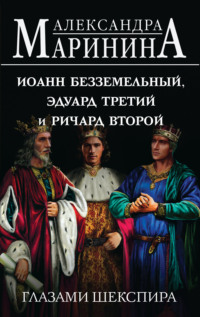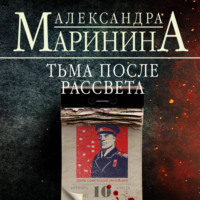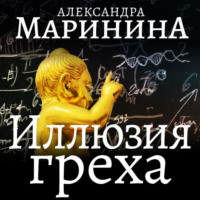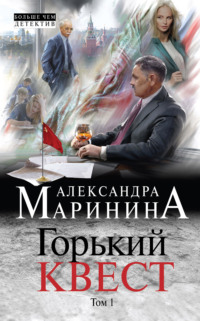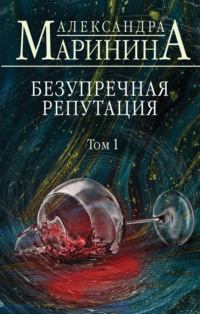
Полная версия
The Stylist
“You took Oleg Meshcherinov as a cadet for your department, remember?” Svalov continued.
She remembered. It was one of her worst memories. Oleg seemed quick and bright in his studies, and she selected him alone from the entire class. But it turned out that Meshcherinov used those qualities not only to fight crime. Oleg became a turncoat, working for the enemy, interfered with the course of an investigation and in the end… Meshcherinov killed Zhenya Morozov, a cop, and Major Lartsev was crippled, and Oleg was dead. They shot at each other, and Lartsev was a better shot. He was good with hand guns. Nastya wondered if Svalov knew the circumstances of his classmate’s death.
She explained her plan for gathering information that might lead to the identification of the film-loving thief. The work was hard and apparently did not elicit Gennady’s enthusiasm. Moreover, it didn’t seem to Nastya that he was following her reasoning very well.
“You mean go to all the rental places?” he drawled unhappily.
“Not only go there, but write down the names of the people who rented the films that interest us.”
“They don’t ask for ID, people can use any name they want.”
“That’s not your problem. First we have to get all the names and then we’ll think about how to use them,” Nastya explained patiently.
“How can you use them if they’re fake?” Gennady wondered sincerely.
Nastya was getting angry. This fellow wanted to take the easy way. Strange, how did he have the sense to check the fourteen films. Did someone else suggest that to him?
“First of all, we don’t know whether the thief used a false name or not. Perhaps he saw no need to do that. Secondly, we don’t even know if he rented any videos at all.”
“Then, you mean, all this work could be for nothing?”
“Maybe,” Nastya said. “But it still has to be done. We’re talking about a possible killer and we have to do anything we can to find him. And remember this, please: don’t talk about this. I mean the missing and dead teenagers. Do you understand?”
She had the feeling that he had understood absolutely nothing. It looked as if they had made a mistake with this Svalov, but it was too late now. He was part of the group and he knew everything about the poor boys. No retreat.
* * *In the evening, Nastya went to the hospital to visit her sister-in-law. Her brother had done his best, naturally, and Dasha was in a private room with a television set and refrigerator. One look at the young woman’s pale face, Nastya felt a jab in her heart. She could tell that they couldn’t save the baby.
“You’re so young, Dasha dear,” she said gently. “You’re only twenty. You have time to have as many babies as you want.”
“I wanted this one so much,” Dasha whispered. “It was such a marvelous day when Alexander and I… well, you know.”
“Dearest, you and Alexander love each other so much that you’ll have plenty of marvelous days in your life. Please, don’t despair. You’re planning to go to Paris for your anniversary, right? Think how lovely it would be to bring back a baby from Paris.”
“I can’t,” Dasha whispered sadly. “The anniversary is next month. We can’t. The doctor said I have to be careful for three months.”
Tears started flowing from her huge blue eyes, even though Dasha bravely tried to smile with trembling lips. Nastya’s heart ached for her.
“When are they letting you go home?”
“Next week, if there are no complications. I’m sorry.” Dasha sat up and wiped her tears. “I’ll try to stop crying. It’s my own fault, no point in wailing now. I shouldn’t have moved that stupid machine.”
Nastya knew from her husband that the accident happened when Dasha tried moving the washing machine in a burst of housewifely energy. It really was her fault. Though that didn’t make Nastya any less sorry for her.
In the corridor she ran into her brother, who was carrying two huge shopping bags filled with fruit.
“Why don’t you bring her a good book instead?” Nastya said, kissing his cheek. “She needs distraction.”
“I’ve brought her books. She doesn’t want to read.”
“Make her. Are you the husband or what? Use your manly powers. It’s not good for her to lie around all day thinking about the lost baby. And get her home as soon as you can. She’ll sicken here. She just lies around and weeps from morning till night. That’s no good.”
“I know that,” Alexander sighed. “Are you in a hurry?”
“Not especially. Why?”
“Let’s go back in to see Dasha. I’ve been twice today. I’ll just give her the fruit, we’ll sit another ten minutes, and I’ll drive you home.”
They went back in. Dasha, not expecting any more visitors, was weeping inconsolably. It was unbearable to watch. Nastya tiptoed out into the hallway, leaving her brother alone with his weeping wife. About twenty minutes later Alexander came out.
“You’re right,” he said on the stairs. “I have to get her out of here. I’ll go to the chief surgeon tomorrow morning and demand they release her on my recognizance. It’s better for her to be at home, with the baby. Her mother will take better care of her than any doctor. A mother’s care is always best.”
Nastya didn’t doubt that he’d do exactly that. If they refused to release her, he’d bring out the money. Her brother wouldn’t balk at any sum when it came to his wife and son. He was a young and successful entrepreneur, wealthy and certain that money could solve any problem.
On the way to Nastya’s house, he was quiet and then suddenly asked, “Is everything all right with you and Lyoshka?” “Of course. Why do you ask?”
“He seemed tense to me. You haven’t had a fight?” “Alexander, we never fight, you know that. Maybe he was tired.”
“Nastya, don’t try to kid me. I know what your husband is like when he’s tired. He was upset by something.”
“Nonsense,” she said, knowing full well what was upsetting Alexei. Her work with Solovyov. “Why don’t you tell me instead if a lady by the name Yakimova is known in the business world?”
“Yana?”
“Yes, Yanina Yakimova.”
“She’s a tiger.” Alexander smiled for the first time. “Iron grip. Incredibly lucky. And incredibly rich. What do you want with her?”
“Just curiosity. I ran into her husband recently. But please, my interest in her is totally private. I hope you understand that. As far as her husband is concerned, I’m not a detective, but a lawyer.”
“They say he stays at home with the kids. Is that true?”
“It is. He drives them to play group and school, picks them up, cooks meals. Have you ever seen her?”
“Of course. More than once.”
“What’s she like?”
“Watch out! She’s scary. Beautiful. But overwhelming. She’s too tall, too large, too loud, too much hair. If you could reduce her by a third she’d be perfect.”
“Any gossip?”
“How can I put it. Yes and no.”
“Elucidate.”
“It’s not easy,” her brother said with another smile. “For instance, when she succeeded in a deal that should not have worked, according to all the prognoses, it was rumored that she was using illegal methods to coerce her subagents. But it was only rumored, because no one could prove that she hired strongmen or blackmailers to achieve her aims.”
“Maybe there were personal elements in that deal?” Nastya suggested. “Something intimate.”
“No way,” Alexander replied categorically. “No one even hinted at that. Yana has a reputation as the perfect wife. And you wouldn’t have asked if you ever saw her. The man who would make a pass at her would have to be a kamikaze, at least. He would have to be six foot six, weigh 250 pounds, and have about ten million dollars. And be single. And between forty-five and fifty, no older than that. With a masterful personality and a strong hand. That would give him a chance. And where are there any men like that?”
“All right, all right,” Nastya said doubtfully. “Don’t exaggerate. Do you know what her husband is like? Shorter than me, half-bald, sweet and shy. A very nice man. Busy with the children and house. With no personal income, I don’t think.” “Exactly. What does she need another one for? Lovers are supposed to be different from the husbands.”
“You may be right,” she agreed thoughtfully.
They pulled up at her house.
“Come on up,” Nastya invited. “Why should you be all alone at home? Your little Sasha is with Dasha’s parents anyway. ” “Fine,” Alexander said.
It would be hard to believe that the half-siblings had known each other only eighteen months, before that knowing of the other’s existence but never meeting or even speaking on the telephone. Alexander was eight years younger. They had the same father, but different mothers. Their acquaintance began with a rather unpleasant event, but soon grew into a warm mutual liking and then into sincere affection. Nastya and Lyoshka came to love Dasha, at the time Alexander’s girl friend, and later fiancee and wife. Alexander and Nastya were both only children of their parents, and they both eagerly accepted each other – related by blood and similar in looks and personality, despite being brought up in different families. They resembled their father, Pavel Kamensky – tall, fair, thin, with almost colorless brows and eyelashes. Both were on the cold side, slightly cynical, reserved, and ruthless toward themselves. But they both were capable of overwhelming compassion and sympathy for the suffering of their loved ones.
* * *Nastya couldn’t stand being late. She always tried to leave early, with a cushion for unexpected complications like stuck metros in a tunnel or traffic that would tie up her bus. She made an appointment to meet with Gennady Svalov at Komsomolskaya Station, but she was twenty-five minutes early and she decided to wander around the square outside to check out the multitude of book sellers.
There were a lot of Sherkhan books, they were easy to spot because of their bright and recognizable format. To her surprise, Nastya saw The Blade, the book Solovyov told her was out of print since last year. “Volodya clearly overestimates the series’ popularity,” she thought with a chuckle. She bought one anyway, even though Solovyov had given her his own copy. She would keep this one and return his, rather than risk harming it in some way. While she was at it, Nastya bought another three novels from the Eastern Best Seller series. Solovyov had said that they were all well-written, and she and her husband enjoyed mystery books.
The seller, noting her interest in the series, got into a conversation with her.
“You’re lucky, you bought the last copy of Secret of Time. It’s selling very well, I’ve sold six copies today.”
“How’s the series doing?” Nastya asked.
“Great! You know, people snap it up! They wait for the new ones, they keep asking, and my regulars ask me to put them aside for them.”
“And is this Secret of Time really the last copy?” she asked curiously. “The very-very last copy?”
“For today, yes. They’ll bring more tomorrow. We take three or four of each title for a day’s work. If it’s a popular book, we take more, maybe ten. If they don’t do well, we take one.
“How long have you been selling Secret?”
“Almost a month.”
Nastya walked around the square, looking over the selection in the other stalls. There were copies with the elegant EBS logo everywhere, and all the sellers assured her that the series went like hot cakes. Well then, no wonder Solovyov was rich. Apparently, his fees were better than good. Especially if he didn’t get an outright fee but a royalty based on sales.
Putting the books in her bag, she walked to the rendezvous spot. Gennady was late, it was already five minutes past the time. Nastya made a face. She liked punctuality.
At last, fifteen minutes late, the young policeman showed up. He didn’t even think to apologize and with a businesslike air began pulling papers out of his case. His expression was not very friendly, in fact, it was almost disgusted.
“Here are notes from the registers of thirty video rental places. I killed two days on that.”
“And how many are there in all?” Nastya asked innocently.
“Seventy-four.”
“That means you’ll kill another three days,” she said calmly. “And don’t give me that look as if I made you spend your working hours on my personal problems.”
“I have a very heavy load as it is,” Svalov grumbled.
“Just imagine – so do I. And this maniac wandering the city freely is our headache. Not someone else’s, but yours and mine. Let’s try to keep that in mind all the time, all right?”
Nastya took the papers and went back to Petrovka Street to take care of urgent cases. By the time she got home, it was almost ten. There was a note on the kitchen table: I’m teaching tonight. Dinner is in the oven, don’t be lazy, please, and heat it up. Love.
Lyoshka knew his wife well, no denying it. Nastya’s famous indolence sometimes found paradoxical manifestations, and being too lazy to heat up food was a usual occurrence. If a dish could be eaten cold, she did, and if it really needed to be hot, and Lyoshka wasn’t there to supervise, she preferred a hunk of bread with cheese or sausage and a cup of strong coffee.
The struggle between hunger and laziness lasted about a minute, whereupon Nastya adopted a compromise: she quickly stuffed the traditional sandwich into her mouth and then patiently waited for husband’s return to have dinner with him. With her bread and salami, she got comfortable, stretched out her legs with her feet on another chair and opened the best seller she bought at the railroad station The Blade. The book was beautifully written, the plot developed quickly, and she was captivated from the first few pages.
A while later Nastya noticed that her fingertip, with which she turned pages, had turned black. Was the ink rubbing off? She rubbed with another finger. The white page now had smudges. Nastya brought the book close to her face and sniffed – it had that smell of freshly printed books.
She looked at the publishing information in the back. It was sent to the compositor on January 26, 1995, and signed off for the printer of March 3, 1995. That was over a year ago, and the ink was still rubbing off. And there was the smell. That wasn’t possible. This must be a second printing. But why was the old information on the page? It looked like the leftover print run from last year.
She rummaged in her purse and got out the second copy – the one Solovyov gave her from his shelves. The books were exactly the same, with the same publishing information. But this book did not smell of fresh ink and did not smudge. How could that be if both books were printed at the same time, a year ago?
Then her mind moved to the mathematical. The book seller had told her that popular books went at a rate of ten a day. All right, say five. And how many book stalls were there in Moscow? Around three hundred. Say only two hundred. Five books at two hundred stalls is a thousand a day. How many were printed? The information said 70,000 copies. That’s seventy days of sales. And only in Moscow. But Sherkhan sold books in other cities, too. That information page listed their official dealers – twelve companies in twelve regions of Russia. Assume that half the print run stayed in Moscow and the other half was sent out to the other cities. Thirty-five thousand in Moscow. Thirty-five days of sales. What if they sold five a day only the first week and then it slowed down? But the book seller at the station said that Secret of Time had been in print around a month and he had sold seven books just today. No, it didn’t work. The Blade could not be available on the shelves for a year if they printed only 70,000 copies. It should have stopped selling last May or June. Say, even August. But this was April… Where did this book she bought at the station come from?
The key turned in the lock and Lyoshka was home.
“How was your lecture?” Nastya asked, rubbing her cheek against his shoulder.
“Fine. Why haven’t you eaten, you brazen thing?”
“I was waiting for you. You know I can’t eat alone, it’s too boring. We’ll eat together.”
“Yeah, yeah,” Chistyakov snorted. “Good old Lyoshka will heat it up and serve it and then we’ll eat. All right, stay where you are, I know you’re never going to change. What are you reading?”
“An Eastern Best Seller from Japanese-American life.”
“And the second book?”
“Same thing. They’re the same.”
“Did you buy it for someone?”
“No. Listen, let me run something past you.”
Lyoshka had already started reheating the hash and was slicing tomatoes on the cutting board, his back to Nastya.
“I’m listening,” he said without turning.
“You have to look at something.”
“Then wait a bit.”
He finished the salad, wiped his hands on a towel, and came over to the table.
“Take a look at these two books, please,” Nastya asked. “Tell me what you think.”
“Other than the fact that they are exactly the same?”
“Yes.”
Lyoshka opened both books and read the title page closely. Nastya didn’t think there was anything interesting there. On top in black letters was the author’s name, Akira Hakahara. In the middle of the page, the title, The Blade. On the bottom the logo of Sherkhan Books, the face of a roaring tiger.
“But they are different,” he said, looking up in surprise at his wife.
“What makes you say so.”
“They are made differently. This one” – he showed her Solovyov’s copy, “is printed photomechanically, and the other photoelectrically.”
“I don’t see it. What shows that?”
“The letters are colored in different ways. With the photomechanical method, the ink is even, but here, in the second book, you can see that the ink is much paler on the bottom half of the letters than the top. Take a look.”
Now Nastya could see it. Rather, she had seen it before, but a person who didn’t know about printing would not have paid any attention.
“What does it mean?” she asked slowly, realizing that she had come across something important.
“It means that these books are not from the same print run.
By the way, why are you asking? Do you have a suspicion about something?”
“The ink is smudging,” she explained, showing him her blackened fingertip. “It’s completely fresh. But the publishing information says that it was printed a year ago. Oh, Lyoshka, something’s burning!”
“Damn!” He moved to the stove and turned off the flame under the skillet. “The hash is burnt. You and your printing mystery.”
“I’m sorry,” Nastya said piteously. “I didn’t mean to.”
They ate in silence but then Nastya said, “Lyoshka, what is a photomechanical method?”
“Forget it. It’s too long and hard to explain.”
“Make it short and simple, for dummies. Very general. I just want to know what distinguishes one method from the other.” “Why do you care so much?”
“Not so much, but I do want to know. Not for any crime that I’m working on. But you know that I don’t like not understanding.”
“First the manuscript is composed on a computer and an original mock up is made. Then film – slides – is made from the original. Got that?”
“So far.”
“That part is the same for both methods. Then come the differences. With the mechanical process, they make a matrix from the slides. A matrix is good for about fifty thousand prints. If the print run is for more than fifty thousand, they made a second matrix. With electrography, copies are made with photocopying technology. A kind of risograph, if you know what that is.”
“I don’t, but that’s not really important. I’ve grasped the main differences. Lyoshka, why have a print run that’s not divisible by fifty thousand?”
“What do you mean, why? Pass the ketchup, please.”
“Here. I want to know why people print more than fifty thousand but less than one hundred thousand. If you have to make a second set of matrices anyway, why not use them fully. Right?”
“It may not pay,” he said with a shrug. “They may not be able to sell a hundred thousand, so the cost of paper and jackets is wasted and the books will just take up space in a warehouse. Fifty is not enough, a hundred too much. That’s all.”
“Then there’s something else I don’t get. Why print a book by photocopy if you have the matrices for another thirty thousand copies. Are the matrices destroyed once a book has been printed?”
“Depends on the contract. They might, they might not. Why are you hung up on this?”
“Curiosity. Lyoshka, it looks like we have tax evasion here, pure and simple. The publishing house is not as stupid as your wife. They probably use the matrices all the way and print a hundred thousand. But in the information they put seventy thousand, and that’s their tax base. The remaining thirty thousand they sell but don’t pay taxes on. After a while they take the slides and do copies. The publishing information is the same and everybody thinks that they’re still selling remaining parts of the original print run, which was actually completed and taxed. It’s important that the book be a popular one. Good idea, huh?” “Yep,” he agreed. “I just don’t understand what’s it to you. Are you planning to switch jobs and move to the tax police? Or be a publishing lawyer?”
“No, honey, I’m not going anywhere. I’m just solving a puzzle for my mental exercise.”
“Really?” Lyoshka raised his eyebrows. “And here I thought you planning to defend your friend Solovyov, who was being hurt by the big bad greedy publishers.”
She flushed. He was wrong, she hadn’t been thinking of Solovyov at all. Moreover, judging from his lifestyle, the publishers weren’t cheating him. But Lyoshka was suspicious anyway. He seemed hurt, even. How could she have been so clumsy? What had made her discuss these books with him?
“You’re wrong, darling,” she said in a steady voice. “Solovyov has nothing to do with it. It’s a coincidence that it’s his books we’re discussing.”
“Fine,” he said. “If you say so. What are your plans for Saturday? Going to work?”
“No, I’m home tomorrow. I need to use the computer.” “When’s the next visit to Solovyov’s?”
“Lyoshka!”
“Now, now, I’m as cool as a frozen mammoth. I just need to know for the car. When will you need it?”
“If you don’t mind, I’d like to go Sunday afternoon. But if you need the car, I can go tomorrow or Monday.”
“Do what you were planning,” he said. “I’ll be home Sunday.” “Thanks.”
The air was thick with tension and Nastya tried to think of a way of discharging it. But nothing original came to mind.
“Lyoshka, I can’t stand to watch you torture yourself,” she said decisively. “I’ve told you that we’re dealing here with a serious crime. Nine boys have died, teenagers who were missing persons. Somewhere in Moscow or nearby there is a monster who keeps them locked up, pumping them full of drugs, sleeping with them until they die of an overdose. He is crazy, a maniac. Every day I live in horror that more parents will show up to report yet another missing boy. The only lead I have is connected to the place where Solovyov lives. I have to go there, please understand. It’s my duty. It’s my responsibility before the poor parents who wait months for word of their son and find only his corpse. But your feelings are just as important to me. You are my husband, I love you, and for your peace of mind I am ready to do anything. I don’t want you to suffer from baseless jealousy. But if you can’t stop yourself, then I’ll have to stop.” “What are you trying to say?”
“I’ll stop going to Solovyov’s.”
“What about the boys? Their parents?”
“Nothing. Let someone else look for the maniac, someone whose husband isn’t so jealous.”
Lyoshka smiled in chagrin, but with evident relief. He seemed embarrassed.
“I’m sorry, Nastya. I didn’t think it upset you so much. No more, I’ll stop.”
“And I can see Solovyov?”
“As much as you like.”
“And you won’t have fits over it?”
“I will.” He burst out laughing. “Strictly out of stubbornness. To spite you. So that you see what it’s like for me when you’re upset and I don’t know why or how to help.”
“Being difficult, eh?”
Nastya knew it was over. The conflict had been brewing for a week, since last Friday, when she first went to see Solovyov and wish him a happy birthday. Wariness, tension, and cool alienation had hung over the apartment for a week, even though they both behaved normally – calm, peaceful, and amiable. Hidden conflicts are very dangerous, leaving permanent wounds, despite the absence of shouting, yelling, or other loud and colorful manifestations. She remembered a line from a section of The Blade she had just read: “A person with sad eyes is a person who never cried as a child when scolded or beaten.” The line seemed vaguely familiar, but Nastya wasn’t in a mood to dig around in her memories.



